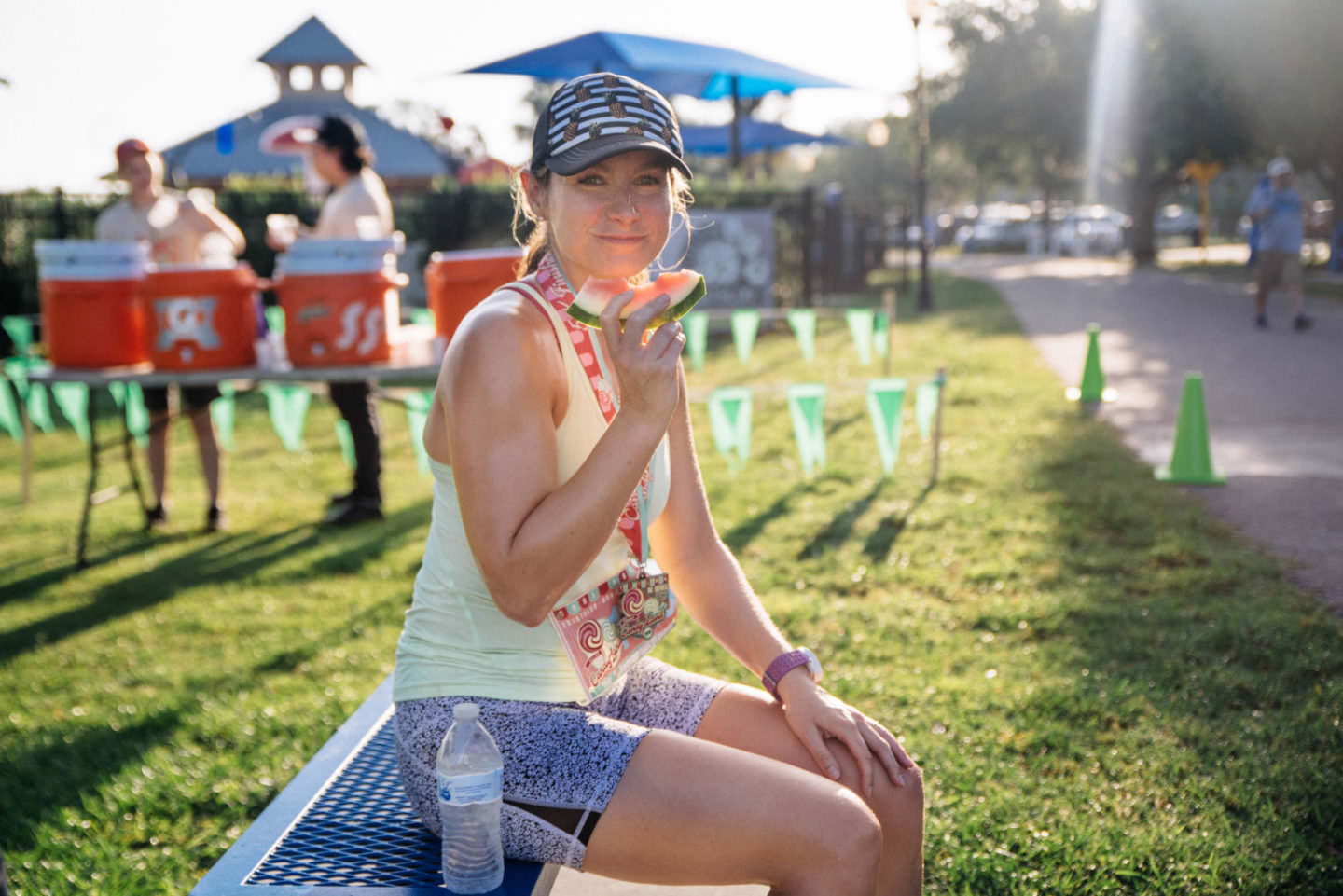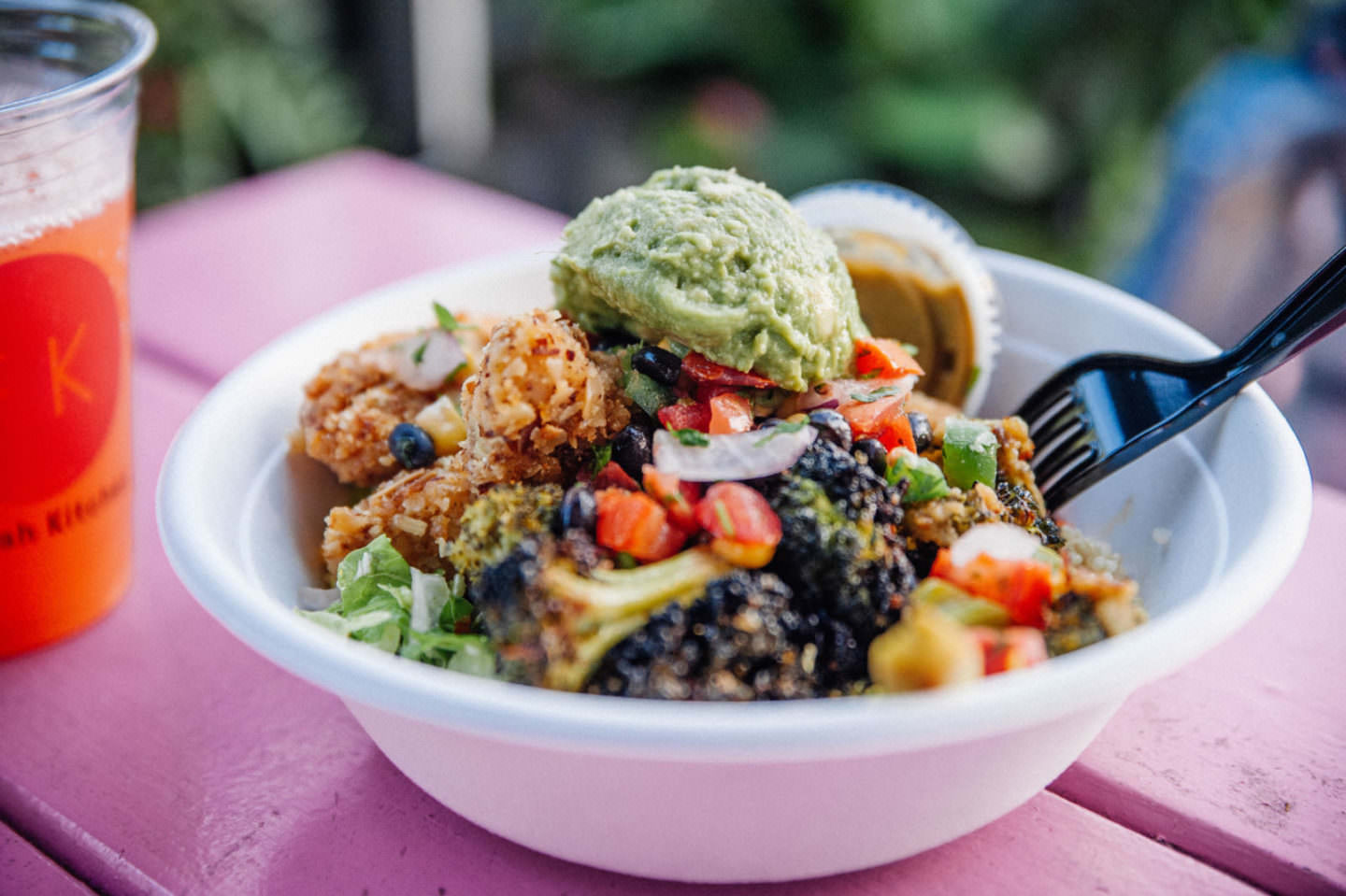
Lets face it, when marathon training, many of us have non-stop hunger. The kind of hunger that even when you finish your long run and eat an entire pack of chocolate fingers isn’t satiated (ahem, or is that just me?)
When I trained for my first marathon, instead of losing weight as I thought I might, I actually put on weight. It was a combination of not changing my lifestyle outside of running AT ALL, and eating everything in sight when I got back from my long runs.
Without trying to make myself unpopular…but I do think about ‘earning’ treats. Not from a calorie perspective, but from effort. Ie I’ve got up early, run 15 miles, I’ve earned an afternoon on the sofa with a cup of tea and piece of cake.
However, I try to make those days exceptions rather than everyday happenings. I generally try to eat balanced meals and snacks, following many of the tips below to stop eating myself out of house and home (and avoid marathon weight gain!)

Eat more fibre
Studies have shown that many of us in the UK aren’t eating enough fibre in our diets, with average intake of just 18g per day when the recommended daily intake is 30g.
Soluble fibre dissolves in water and produces a type of gel that delays stomach emptying and slowing down digestion through your intestines…keeping you fuller for longer! Increasing your intake of fruit, vegetables, beans, oats etc can help with this.
Insoluble Fibre holds water, helping you feel physically ‘full’. It also helps with digestion and bowel movement. You’ll find insoluble fibre in fruit and veg skins, wholegrains, nuts, corn and bran.
Adding a handful of nuts and seeds to your lunchtime salad, keeping the skin on some fruit/veg, opting for wholegrain options and picking smoothies over juices can all increase your fibre intake…and help stop you snacking mindlessly!
Protein
Not only is protein (in a 3:1 ratio with carbs) post run key for muscle recovery, cell growth and tissue repair, it will also help you feel satiated for longer. Trying to add a mixture of protein, carbs and fat to each meal and snack works to keep you full…try adding nut butter to your mid-morning apple (or the Pret almond butter chocolates!)
Protein though isn’t the be all, end all. I think there’s been an over promoted somewhat in the fitness media, with many companies recommending much higher protein intake than necessary. Put down the protein bar…your body simply can’t use the excess nitrogen in protein and excretes it, whilst the rest of the molecules that make up protein are stored as energy and fat.

UK guidelines for a healthy diet suggest an RNI of 0.75g-0.8g per kg body weight for healthy individuals, or about 15% of your daily caloric intake.
Water
How often do you think your hungry, but in actual fact, you’re just thirsty? So often I find myself snacking when a large glass of water or cup of tea would have been enough.
Even when the weather is cold, it’s important to hydrate yourself properly before, during and after a run. We should be aiming for about 2 litres of fluid per day, more if you’re a heavy sweater or in a warm environment.
Don’t go Fat Free
Fat works with the hormones in your body to tell you that you’re full and that you can stop eating. Oftentimes, when fat is cut out of a product, like yogurt, it is replaced with sugar which can have the opposite effect on hormones and the brain. Don’t be afraid of fat from quality sources… avocado, olive oil, yogurt etc.

Eat REAL FOOD
I think this is the one piece of advice I give everyone and anyone when they hear I’m studying to be a dietitian. I give the example of avocados and Pringles…it is VERY hard to eat multiple avocados (not talking about in the form of guac with chips…then it is very easy for me to overeat!) but it is possible to eat most of a tube of Pringles without even noticing. Many of the snack foods we like are literally designed to make us keep eating, overriding our hormonal signals to say we are full.
Hunger, real hunger, dissipates after we have filled our bodies nutritional need for energy. However, it’s not always that simple, and our appetite (or the idea of comfort eating) is a learned behaviour and response to food.
Top Tips:
- Fill your fridge and cupboards with easy yet nutritious ‘real food’ snacks.
- Aim to eat 5-10 pieces of fruit and veg a day (by actively adding in extra fruit & veg, you’re less likely to have time/space for ’empty’ cals)
- Opt for a mix of protein, carbs and fat with each meal
- Drink at least 2L water/fluid per day
- Increase your fibre intake – here’s a great factsheet from the British Dietetic Association of a day full of fibre
- Try to eat within 30 minutes of finishing your workout – keep a bar, piece of fruit, pack of nut butter or smoothie in your bag/car/fridge for easy reach after you finish to avoid eating whatever (potentially less nutritional) snack is at hand.
- Don’t cut out anything that you really like – as soon as you put it as a ‘no-go’ food, you’re more likely to overindulge on it eventually or just make yourself miserable!

this is the toughest. running in general (marathon or even half training) make me insatiable. well immediately nauseous and then insatiable. xo
I love that you’re in the camp of “earning treats.” I like to finish up my long runs knowing I’m going to eat something like a burger or some ice cream. It’s not like I never eat these things but it’s nice to have something to look forward to. Yesterday it was a plate of cacio e pepe for dinner 🙂
Absolutely love this article because I can most certainly relate, I made a golden rule where I always prepare a snack before I exercise , so when my run I can immediately go for my snack which is usually protein filled.
But this really helped me and has become my GOLDEN RULE, to learn more about this https://glutes.4ever4life.com
I totally support you and thank you for being so real and honest about our daily struggles
this is awesome … curious given your expertise … thoughts on intermittent fasting???
I don’t actually know a huge amount about intermittent fasting but will do some research and try to write a post soon! it seems like it’s a question a lot of people have!
Really good advice here!
The bit about eating “real” food is one that I think applies regardless of exercise. And the good news is that it isn’t about cutting out things really.
Oh, and I definitely think about having something nice after a long run, it is a real motivator 🙂
This is a great post full of good advice!
I used to follow crappy diets that never worked before slowly becoming passionate about nutrition, learning about food and realising its actually quite simple to stay healthy haha
Such useful advice. Nutrition is one thing I’m not great at and it intimidates me so much, so it’s great to have some sensible advice that doesn’t involve a million confusing supplements that are probably totally unnecessary!